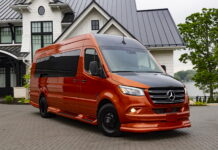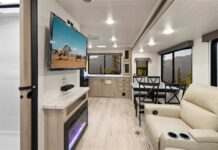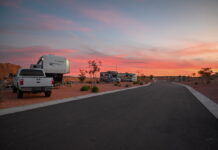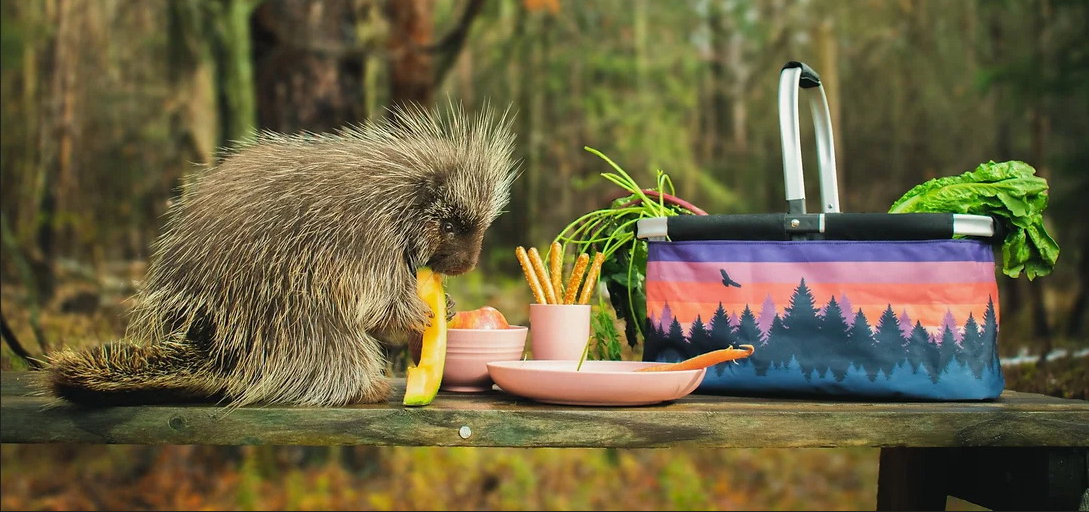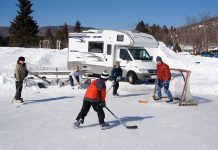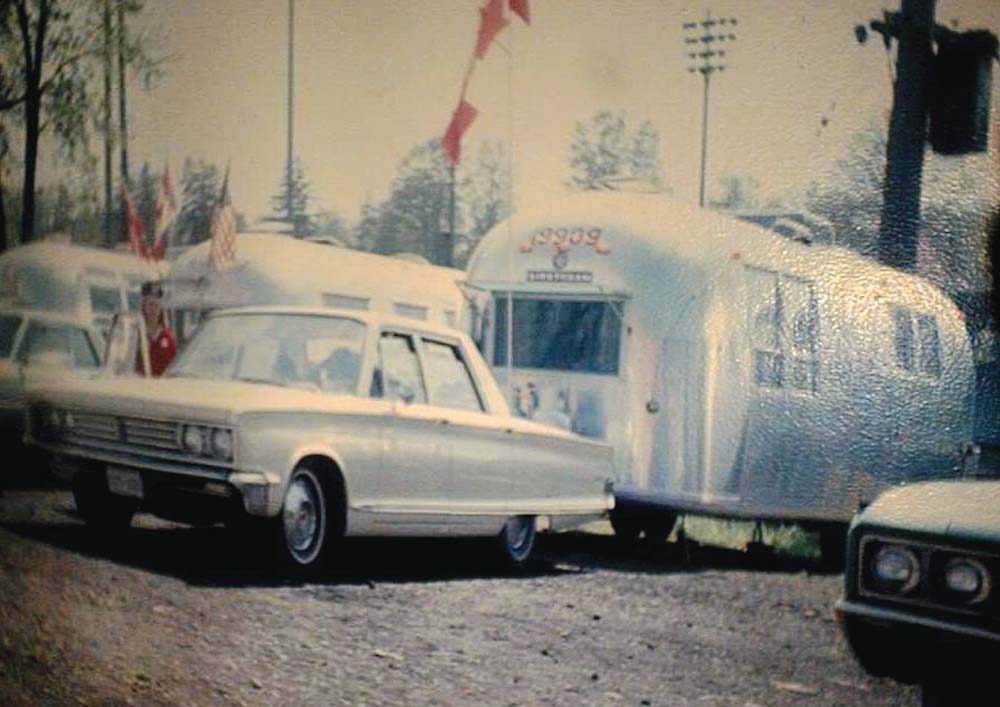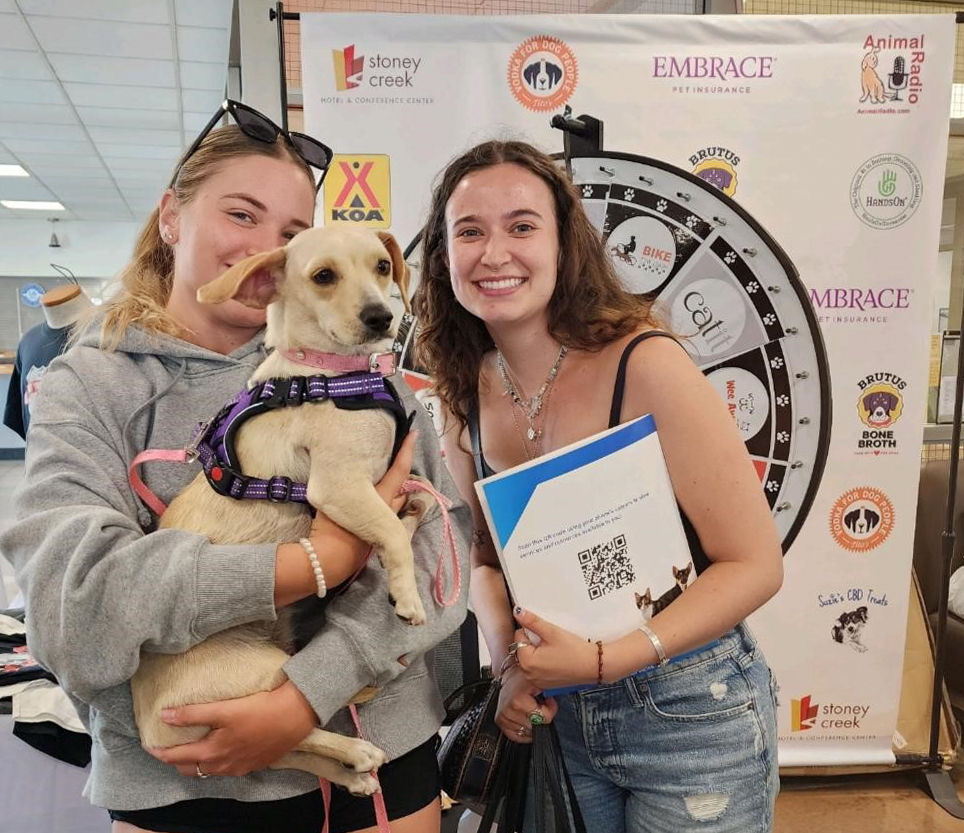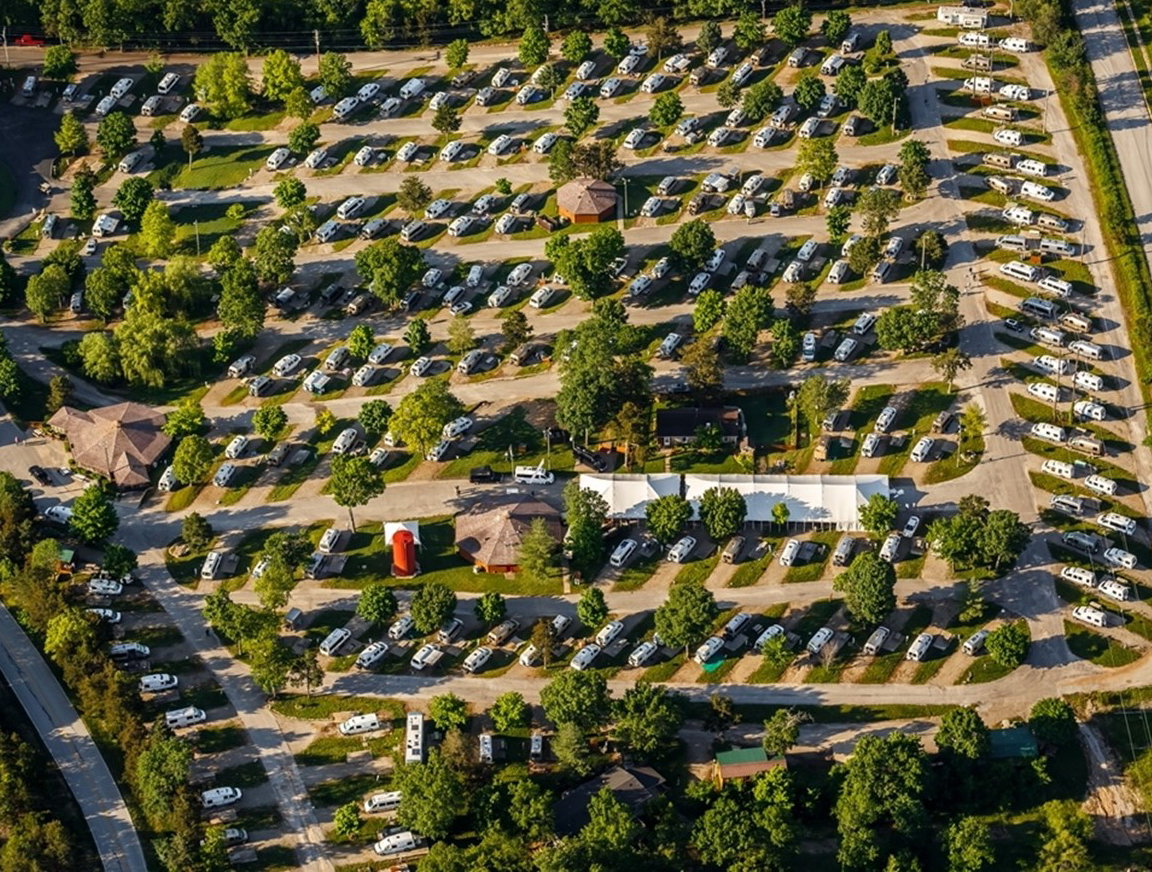A walk down memory lane from our 25th Anniversary Issue of Winter 1996
Purchasing an RV for the first time can be a very confusing experience. For a variety of reasons, many people begin their adventures in the RV lifestyle in a travel trailer of one type or another. Let’s take a few minutes and examine some of the questions first time buyers have when they begin the RV selection process.
The most pressing question travel trailer shoppers must deal with concerns the tow vehicle. Most people, to keep the initial investment to a minimum, hope to use their present car as a tow vehicle. The decision, which may be quite sound, becomes confusing when some dealers tell you that you are able can tow with your car, and some say you cannot.
Automobile dealers will sometimes give you advice totally different from the suggestions of an RV dealer… in many cases, the automobile dealer has no practical experience with RVs, and must base his or her opinion on the owner’s manual. The disclaimer concerning warranty coverage often warns against towing vehicles over a specified weight… but offers very little additional information.
Many cars and trucks that seem too small for towing RVs are quite capable of being transformed into excellent tow vehicles. The question is, how do you find out what your car will be able to tow? The answer to the question lies in a combination of power, gear ratios, aerodynamics, weight, and your own performance expectations. In general, small four-cylinder cars with less than 2 litre engines are well restricted to fold down camping trailers, which create very low aerodynamic drag. Some of the larger four-cylinder cars and the six-cylinder models in the 2 to 3 litre range can tow some of the aerodynamic lightweight travel trailers. To tow conventional full-size travel trailers you will require a large six-cylinder or small V-8 combined with the proper gear ratio.
An RV dealer can sometimes give you a good idea of what your car will be able to tow, but unless they have experience with the same model car and trailer combination, there may be some debate about the actual performance of the tow vehicle and trailer combination. RV dealers may not be aware of the subtle yet significant differences between what appear to be similar model cars. For example, a 1989 Pontiac 6000 with a 2.8 litre V-6 and 3 speed automatic transmission has a 2.84:1 axle ratio and is pretty much limited to towing fold-down camping trailers. The same car when equipped with a 4-speed automatic has a far superior 3.33:1 axle ratio and will perform very nicely when towing lightweight travel trailers.
At our dealership, if we are in doubt about what a truck or a car will pull, I suggest to the owner that they have the hitch installed and try the car with the trailer they are interested in, before they purchase it. If the combination does not perform up to expectations, they can look at a more aerodynamic alternative.
While purchasing the hitch before the trailer may seem like an expensive gamble, if you are planning to tow with your present vehicle, you will need a hitch regardless of the trailer you ultimately select. The price of a hitch is far less than the cost of buying the wrong trailer, and then having to trade in your car on a more appropriate tow vehicle. If the car seems to tow the trailer comfortably at 100 kph, with some reserve power, then it should have enough power to pull 80-90 kph into a head wind or up a medium grade without dropping much in speed.
Tow Vehicle Equipment
In addition to the trailer hitch and wiring harness for the brakes and lights, there are several recommended accessories which you should consider installing on your tow vehicle, to prolong the life of the engine and drive train. It is always a good idea to install an auxiliary transmission cooler, and you may find a heavy-duty alternator comes in handy when the tow vehicle will be charging both the car and the trailer battery.
The selection of an appropriate hitch is another area where extra margins of capacity come in handy. I always install the heaviest duty hitch available for the vehicle. It costs very little more than a light duty hitch, and it gives you the flexibility to move up to a larger trailer later.
I do not agree with the statements that trailers under 2,000 pounds do not need equalizing hitches or brakes. A 1000-pound trailer is difficult enough to stop without its own brakes, and an equalizing hitch will make even a 1000 pound trailer handle and ride better than a trailer towed without the equalizing feature.
There are also factory-made bolt-on receivers available for most cars and trucks. There are some vehicles, however, which are not generally used for towing, and you may find it necessary to have a custom hitch installer fabricate a receiver for the vehicle. Ideally, the hitch should fasten to the subframe just ahead of the rear axle as possum.
When selecting a travel trailer you will find that the aerodynamic drag is a bigger factor than the weight of the trailer. Once the weight is rolling, it ceases to be a major factor, but the aerodynamic drag is there constantly. A 1.6 litre car, for example, will likely do a very nice job pulling a 2400-pound fold down camping trailer, but it will not stand a chance with a 1000 pound conventional full size travel trailer. The rule of thumb we use is that the trailer should be light enough that the car can get it up to highway speed in a reasonable time. Generally speaking, 0-80 kph in 30 seconds is considered acceptable.
Your RVDA of Canada dealers will be pleased to help you select the appropriate tow vehicle and trailer combination. You might want to follow our concept of equipping the tow vehicle first, so that you can try a number of travel trailers… over the years, we found that this is the best way to assure a compatible match between trailers and tow vehicles. If you follow this guideline, I am sure you will find a combination that you will be happy with.
Andy Thomson has been writing for RV Lifestyle Magazine for more than 25 years. He also owns and operates Can-Am RV Centre located in London, ON.







